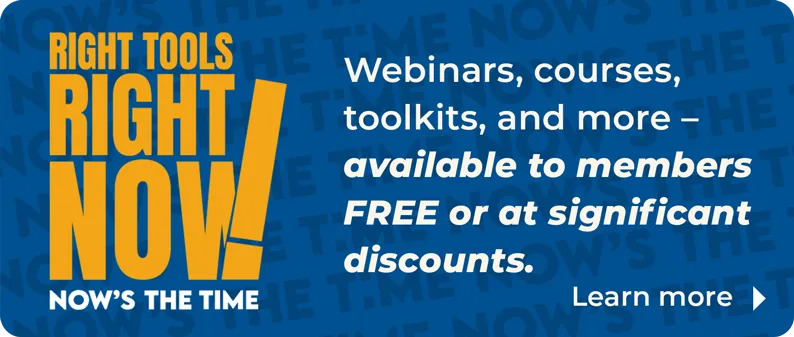The days when REALTORS® sat behind desks waiting for potential clients to drop in are long gone. Today, REALTORS® work from home, from their cars, from Starbucks . . . anywhere. Now, many AEs are following in their members’ footsteps.
RAE spoke with several virtual and semi-virtual AEs about the benefits and challenges of office-less association management.
Where virtual works
Can you run a 320-member REALTOR® association from 1,200 miles away? If Belton Jennings, the virtual AE of the Virgin Islands Territorial Association of REALTORS®, is any indication—yes, you can.
In March 2010, the Virgin Islands association shuttered its physical office, a financial decision that cut operating costs by roughly 30 percent, says Jennings. “Once they analyzed their business, they realized that one full-time person could handle all of the functions [from anywhere],” he says.
Although his 16 years of experience as CEO of the Greater Orlando Association of REALTORS® certainly makes running this small association easier, giving up the association headquarters was still an adjustment.
“Maintaining personal relationships with the members and leaders takes extra effort,” explains Jennings. “We supplement in-person meetings with other forms of constant communications.” The -majority of communication occurs via e-mail, in conjunction with e-newsletters for members and an updated Web site. Jennings also uses Internet meeting software and remains accessible to members whenever and however they want to contact him at his Orlando home office. Since Internet service is unreliable in the Islands, Jennings also visits in -person about four times a year.
Angie Thornhill, administrative executive of the Northeast Central Association of REALTORS® in Missouri (a 170-member association that has never had a physical office), says although her members are spread out among seven counties, “it’s still easy to maintain relationships.” Thornhill does so by -visiting member offices every month, attending sales meetings, and meeting weekly with her leadership team at one of their offices.
Marcia Bartol, virtual executive officer of the 480-member Greater Bangor Association of REALTORS®, Maine, meets with members eight times a year at board meetings, sits on several committees that meet monthly, and is in touch with the president every day by phone.
No special technological requirements
Perhaps surprisingly, AEs don’t need fancy technology to maintain a virtual office. In fact, given the prevalence of tools like virtual meeting software, Skype, and Web-based applications, AEs say most members don’t even know they work from home.
That’s not to say there aren’t a few technological tips and tricks to help you out along the way.
Jennings suggests keeping all association business on an 8GB thumb drive to have access to all your files, no matter where you are.
Bartol is a fan of Meeting Wizard (www.Meeting wizard.com) for scheduling her virtual meetings with leadership; Thornhill uses webinar software to hold new-member virtual orientations and MLS training.
Always on call
Being unable to shut down and call it a day is a common hazard of home-office workers. “I do end up working a lot more hours from home than I would from an office,” Jennings admits.
Likewise, Bartol says it’s hard for her to keep business hours. “If I get an e-mail at 10 p.m. that needs my attention, I end up doing it.” Yet she’s careful not to give out her home address. “People always want to drop things off with me; new member applications, a dues payment. I either meet them somewhere or tell them to put it in the mail to our P.O. Box.”
Overall, virtual AEs say working at home means lower costs for members: No office means no rent, no taxes, no insurance, and no utilities. For AEs it means making a commitment to staying focused, anticipating the needs of the members, and working overtime to maintain personal relationships.
Virtually Virtual
Although Sue Millager, executive director of the Greater Chapel Hill Association of REALTORS®, isn’t a virtual AE, but like a lot of AEs, she savors the days when she can work, undistracted, from home. “At budget time, I’ll go home and spread everything out on my table uninterrupted,” she says. “This helps me to be more efficient when it comes to big tasks that take my singular focus.”
There are only a handful of REALTOR® AEs who work exclusively at home, but dozens of AEs told RAE that working from home occasionally had recently become a part (or perk) of their job.
“I’m a morning person, so my productivity dwindles in the afternoon and then I get a second wind in the evening,” says Millager. “I work around that schedule and the association is getting much more out of me by allowing me the freedom to set my own schedule.”
Jill Beck, EVP of the North Dakota Association of REALTORS®, is virtual when she needs to be. “I love the flexibility that I have, but you need to be disciplined to get the work done and earn the trust of leadership.”
Like most AEs today, Susan Manners, AE of the 600-member Malibu Association of REALTORS®, isn’t tied to her desk. “I can work from home or a hotel room,” she says. “My e-mails stream into numerous gadgets and I’m able to log in to my desk at the office via gotomypc.com.”
Although Manners is not a full-time virtual worker, her accountant, Web master, and programmer all are. “We never meet in person,” she explains. Bills, deposits, and payroll forms are scanned and sent to the accountant by e-mail to reconcile. “I’ve never even met our Web master,” she marvels.
Manners’ association management software is fully virtual, and data is not stored in the office, but rather with the provider. “We no longer store paper member files; they are all scanned and kept online so we can access from any computer, anywhere,” she says. Other services like the board calendar, membership applications, event registration, and payments processing for events are also handled online. “Everything is online.
That way, when I’m on the road or at meetings, I can still run the office from anywhere. It also helps keep costs down.”
Telecommuting Is Law
Late last year President Barack Obama signed into law the Telework Enhancement Act of 2010. This law calls for all federal agencies to create telework policies for all eligible employees and training programs for teleworkers and telework managers. Even though this law doesn’t apply to associations, the government’s recognition of home office value is expected to affect private business practices.








